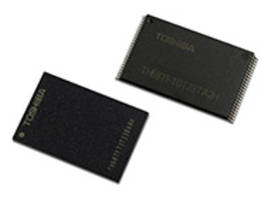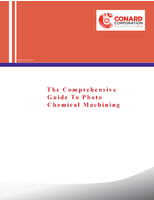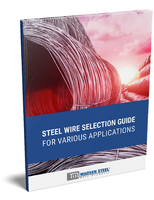BiCS FLASHTM Flash Memory comes with quadruple-level cell technology.
Press Release Summary:

BiCS FLASHTM Flash Memory features 4-bit-per-cell, 64-layer stacked cell structure and die capacity of 768Gb/96GB. Unit enables 1.5-terabyte device with 16-die stacked architecture in single package. Integrated with 3D flash memory process technology, product is suitable for datacenters applications.
Original Press Release:
Toshiba Develops World's First QLC BiCS FLASH 3D Memory with 4-Bit-Per-Cell Technology
Achieves World's Largest Capacity of 1.5TB in a Single Package
Toshiba America Electronic Components, Inc. (TAEC) today announced the latest generation of its BiCS FLASHTM three-dimensional (3D) flash memory. The newest BiCS FLASH device features 4-bit-per-cell, quadruple-level cell (QLC) technology and is the first 3D flash memory device to do so. Toshiba's QLC technology enables larger (768 gigabit) die capacity than the company's third-generation 512Gb 3-bit-per-cell, triple-level cell (TLC), and pushes the boundaries of flash memory technology.
Toshiba's new QLC BiCS FLASH device features a 64-layer stacked cell structure and achieves the world's largest die capacity (768Gb/96GB). QLC flash memory also enables a 1.5-terabyte (TB) device with a 16-die stacked architecture in a single package – featuring the industry's largest capacity. This is a fifty percent increase in capacity per package when compared to Toshiba's earlier announcement of a 1TB device with a 16-die stacked architecture in a single package – which also offered the largest capacity in the industry at the time.
The technical challenges posed by QLC technology needed to be overcome, as increasing the number of bits-per-cell by one within the same electron count requires twice the accuracy of TLC technology. Toshiba has combined its advanced circuit design and leading 3D flash memory process technology to overcome this challenge, successfully creating the world's first QLC 3D flash memory.
The timing of this achievement is especially beneficial to datacenters. "The introduction of QLC technology sets the stage for solving many of the challenges facing datacenters today," noted Greg Wong, founder and principal analyst at Forward Insights. "For datacenters, QLC SSDs can be an excellent design choice for reducing power consumption and lowering footprint. Additionally, as the push for higher capacity HDDs leads to an increase in areal density and drives up the weight per successive generation, it has become common to see a 42U rack only half-filled due to exceeding maximum weight or power supply. Flash memory-based storage solutions weigh less and realize improved power efficiencies, enabling datacenters to achieve maximum rack capacity."
Toshiba Memory Corporation was among the first to produce 64-layer 256-gigabit (32GB) devices, and has continued to demonstrate its leadership position by advancing the development of its technology. Toshiba was the first company to publically discuss QLC technology (at last year's Flash Memory Summit) and it has long been a part of the company's roadmap strategy for high-density, smaller chip size flash memory solutions. The new QLC device is targeted to applications including enterprise and consumer SSDs, tablets and memory cards.
"From SLC to MLC and MLC to TLC, large technology shifts are often met by industry resistance and the introduction of QLC is no exception," noted Scott Nelson, senior vice president of TAEC's memory business unit. "There will always be demand for compelling storage solutions that bring higher densities and produce a favorable cost/performance equation – our QLC technology falls squarely into that sweet spot. History has proven us right in the past when it comes to our visionary flash memory roadmap, and we fully expect QLC BiCS FLASH to continue our industry-leading track record."
Samples of Toshiba's groundbreaking QLC device began shipping earlier in June to SSD and SSD controller vendors for evaluation and development purposes. Additionally, samples will be showcased at the 2017 Flash Memory Summit, taking place from August 7-10 in Santa Clara, California.
For more information, please visit toshiba.com/technologymoves
The products are labeled based on the memory chip(s) it contains, not the amount of memory capacity available for data storage by the end user. Part of the capacity is reserved for device management, and actual formatted capacity may vary. Please refer to the data sheet or your local Toshiba sales representative. (For purposes of measuring memory capacity in this context, 1GB=1,073,741,824 bytes).
Product density is identified based on the density of memory chip(s) within the Product, not the amount of memory capacity available for data storage by the end user. Consumer-usable capacity will be less due to overhead data areas, formatting, bad blocks, and other constraints, and may also vary based on the host device and application. For details, please refer to applicable product specifications.
A structure stacking Flash memory cells vertically on a silicon substrate to realize significant density improvements over planar NAND Flash memory, where cells are formed on the silicon substrate.
About TAEC
Through proven commitment, lasting relationships and advanced, reliable electronic components, Toshiba enables its customers to create market-leading designs. Toshiba is the heartbeat within product breakthroughs from OEMs, ODMs, CMs, VARs, distributors and fabless chip companies worldwide. A committed electronic components leader, Toshiba designs and manufactures high-quality flash memory-based storage solutions, solid state drives (SSDs), hard disk drives (HDDs), solid state hybrid drives (SSHDs), discrete devices, custom SoCs/ASICs, imaging products, microcontrollers, wireless components, mobile peripheral devices, and advanced materials that make possible today's leading smartphones, tablets, cameras, medical devices, automotive electronics, industrial applications, enterprise solutions and more.
Toshiba America Electronic Components, Inc. is an independent operating company owned by Toshiba America, Inc., a subsidiary of Toshiba Corporation, Japan's largest semiconductor, solid state drive and hard disk drive manufacturer and the world's seventh largest semiconductor manufacturer (Gartner, 2015 Worldwide Semiconductor Revenue, January, 2016). Founded in Tokyo in 1875, Toshiba is at the heart of a global network of over 550 consolidated companies employing over 188,000 people worldwide (as of March 31, 2016). Visit Toshiba's web site at http://toshiba.semicon-storage.com.
Contact:
Rebecca Bueno
Toshiba America Electronic Components, Inc.
Phone: (949) 462-7885




